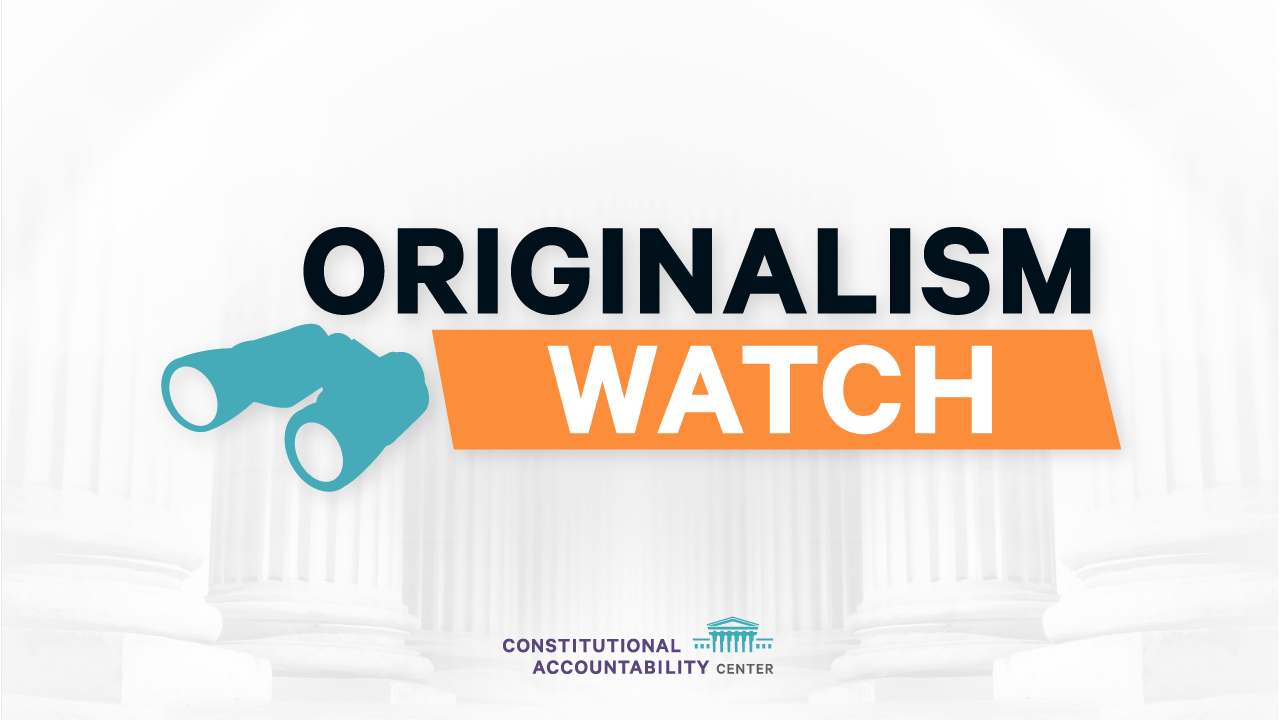Originalism Watch: Fauxriginalist Opponents of Affirmative Action Bring Their Case to SCOTUS

Today, Constitutional Accountability Center filed a brief in support of the University of North Carolina and Harvard College, which are fighting challenges to the schools’ affirmative action policies brought by a group calling themselves “Students for Fair Admissions, Inc.” (SFFA), an entity created to bring cases challenging the use of race in university admissions. The case is now at the Supreme Court, due for argument next term.
SFFA argues that any use of race in a public or private university’s holistic admissions policy violates the Fourteenth Amendment’s guarantee of “the equal protection of the laws.” SFFA also says such a policy violates Title VI of the Civil Rights Act of 1964, which applies the Fourteenth Amendment’s constraints on racial discrimination to private institutions that accept federal financial assistance.
This, however, is peak fauxriginalism—a historical invention ignoring text and history—as our brief explains:
…Significantly, SFFA’s one-sided account fails entirely to grapple with the fact that the Framers of the Fourteenth Amendment were the originators of affirmative action.
Far from establishing an absolute constitutional ban on the use of race by the government, the Framers of the Fourteenth Amendment rejected proposals to prohibit any and all use of racial classifications by the government. Indeed, contemporaneous with the Fourteenth Amendment’s enactment, the Reconstruction Congress enacted a long list of race-conscious legislation intended to ensure equality of opportunity to all persons regardless of race.
These acts were not limited to persons who had previously been held in bondage or [to] the goal of redressing badges of slavery or other government-sponsored racial oppression. Rather, like Harvard College’s and the University of North Carolina’s use of race under review here, the race-conscious measures enacted by the Framers of the Fourteenth Amendment were forward-looking in design, seeking to ensure equality of opportunity and fulfill the promise of equality contained in the Fourteenth Amendment.
At the heart of these race-conscious government measures were federal efforts to ensure equality of educational opportunity for Black Americans. Recognizing the importance of providing pathways to leadership and professional life, the federal government established schools and colleges throughout the South, making it possible for Black persons to realize the full potential of the freedom secured by the Fourteenth Amendment. The Framers also provided chaplains to assist in the education of Black soldiers.
The Reconstruction Framers thus recognized that in certain contexts it was permissible to use race—indeed, to classify on account of race—to help ensure that educational opportunities were available to all regardless of race. SFFA’s contrary view—that universities may take into account every sort of diversity except for racial diversity—would turn the Fourteenth Amendment on its head….
For more, read CAC’s brief in Students for Fair Admissions, Inc. v. President & Fellows of Harvard College, and Students for Fair Admissions v. University of North Carolina.
###
